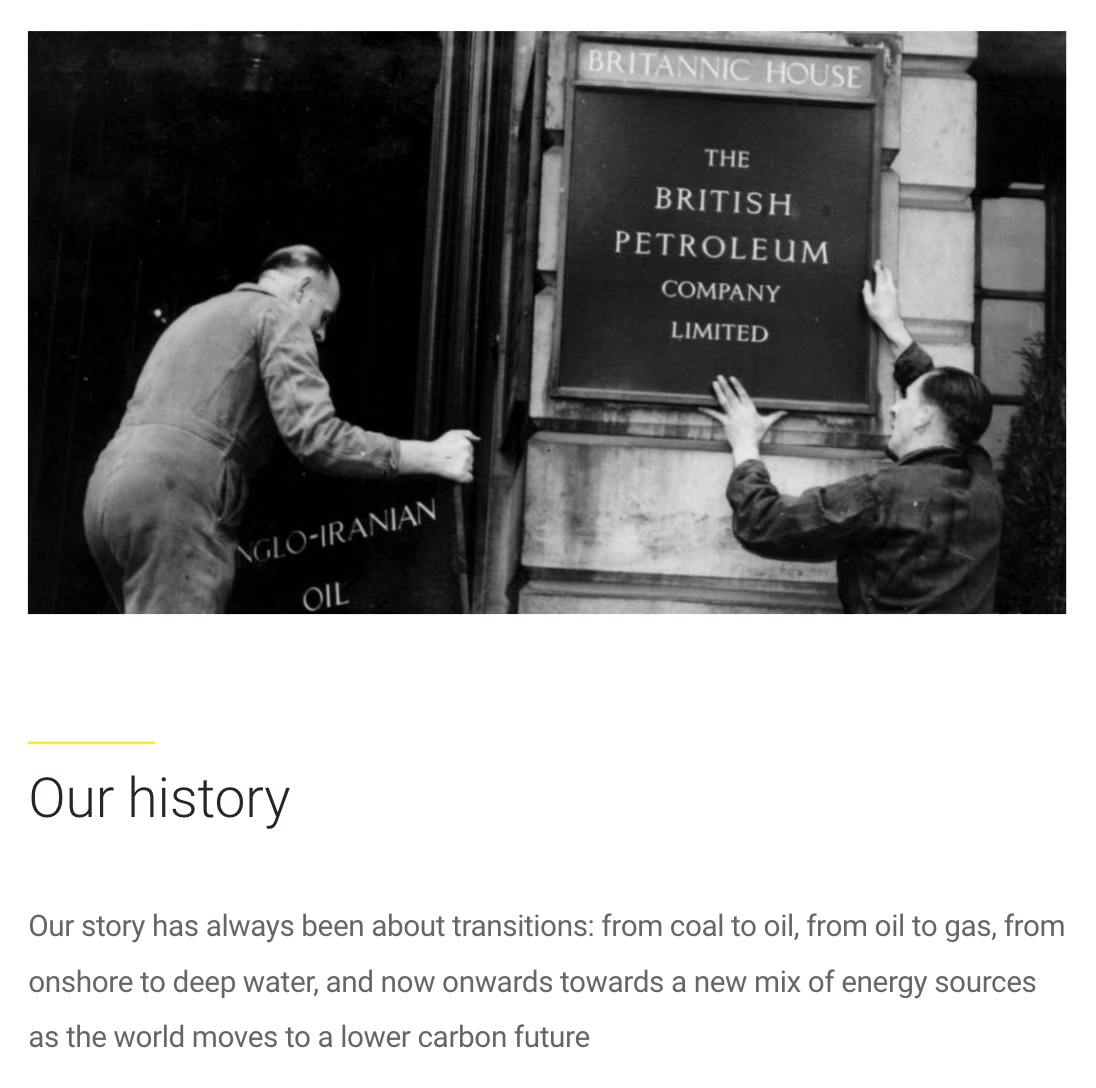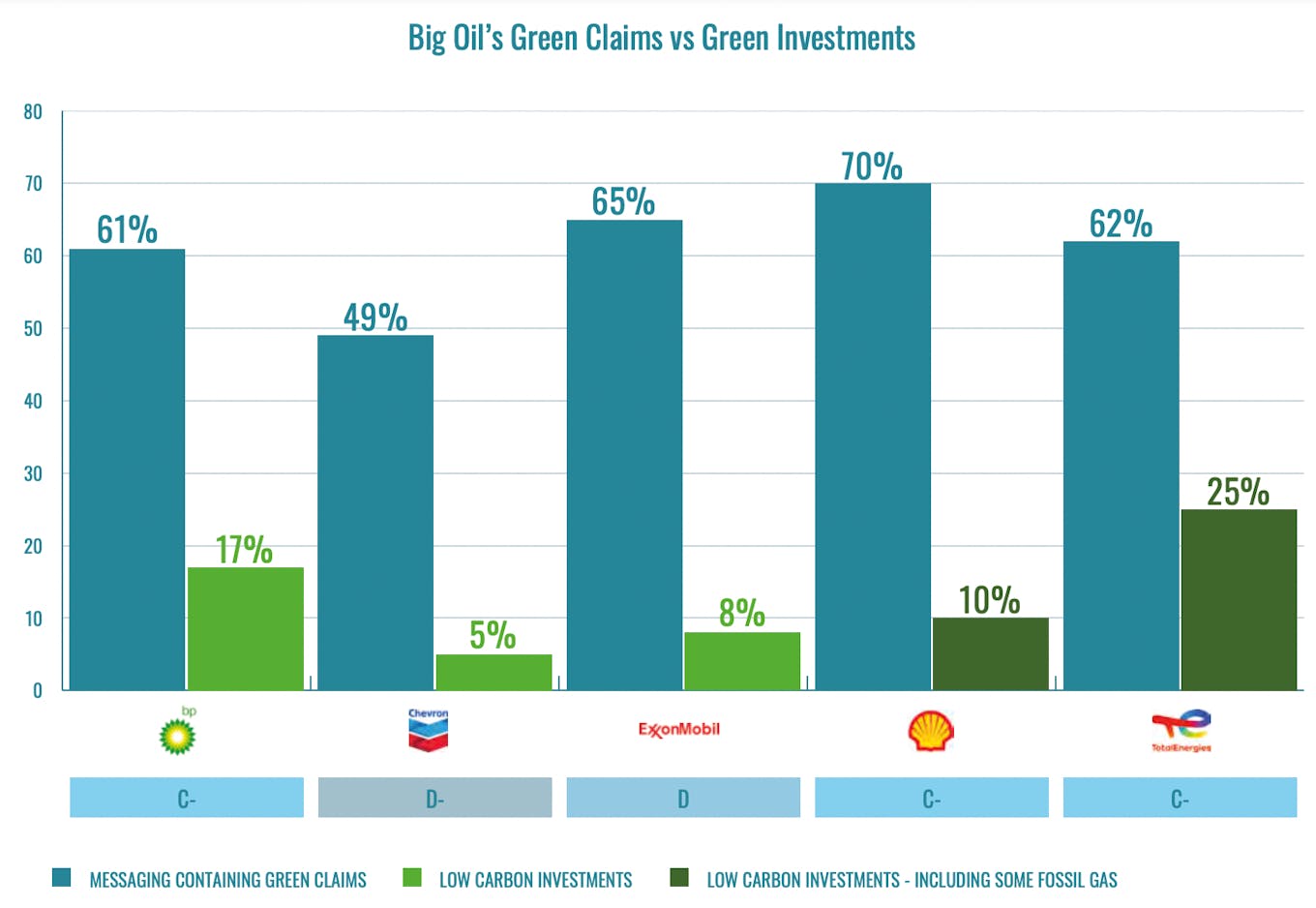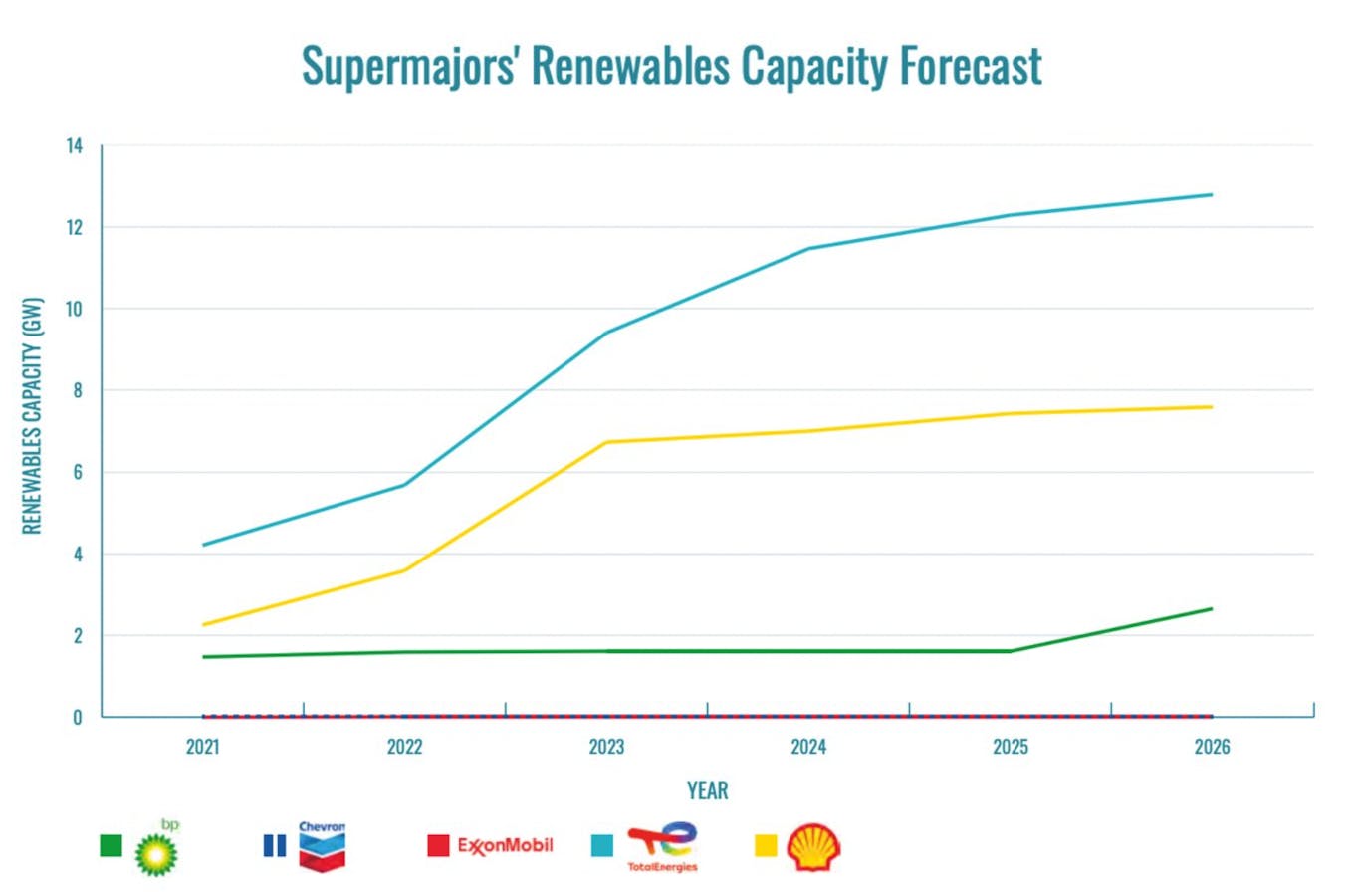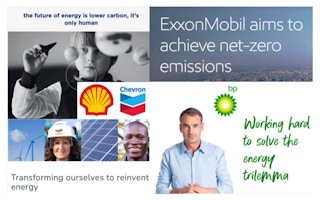Oil companies don’t want to talk about oil.
To continue reading, subscribe to Eco‑Business.
There's something for everyone. We offer a range of subscription plans.
- Access our stories and receive our Insights Weekly newsletter with the free EB Member plan.
- Unlock unlimited access to our content and archive with EB Circle.
- Publish your content with EB Premium.
“The only time BP mentions ‘oil’ in the ‘Who we are’ section of its website is when talking about its history,” says Faye Holder, programme manager for InfluenceMap, a London-based thinktank that monitors corporate lobbying.
Research by InfluenceMap finds that five of the world’s biggest oil and gas companies now rarely mention fossil fuels in their public communications, instead focusing on investments in clean energy and their role in addressing the climate crisis – even though only a fraction of their investments are going into renewables.
Six out of every 10 pieces of communication made by ExxonMobil, Shell, Chevron, BP and TotalEnergies in 2021 positioned the companies as a positive force in tackling climate change, while less than a quarter (23 per cent) promoted oil and gas, according to the study, published on Thursday.
“If your only interaction with these brands was their public communications, you wouldn’t know they are oil and gas companies,” Holder told Eco-Business.
She observes that oil and gas companies now almost exclusively refer to themselves as “energy” firms, which enables them to disassociate themselves from their primarily fossil fuel businesses and be thought of in the more neutral category of “energy”.
The study was based on 3,421 pieces of public communication from the oil supermajors in social media, press releases, speeches and websites in 2021.

The ‘Who we are’ section of bp.com explains that the British supermajor has always been in transition.
The most common green claims the big-five firms are making are about their transition to cleaner fuels. They are also communicating their efforts to reduce emissions and promoting fossil fuels as cleaner energy solutions, for instance calling natural gas “low-carbon”.
The report noted that none of the companies assessed disclosed the strategies that inform their public messaging on climate change nor the resources they are spending on realising these ambitions.
Anglo-Dutch firm Shell made the most green claims last year, with 70 per cent of its communications devoted to what it is doing about global warming.
Houston-headquartered ExxonMobil talked the most about its efforts to cut emissions, positioning itself as a low-emissions oil and gas producer.
French major TotalEnergies, which rebranded from Total S.A., made the most claims about transitioning from fossil fuels to clean energy.
Less than half of Chevron’s communications contained green claims, which suggests that the firm is less concerned with promoting its climate credentials.
These companies’ CEOs made more green claims than the companies themselves, particularly on business social network LinkedIn, the study found.
Green claims vs green investments
While 60 per cent of these companies’ corporate communications were green claims in 2021, just 12 per cent of their 2022 capital expenditure is dedicated to “low carbon” activities, according to company disclosures.

The percentage of Big Oil’s communications that contain positive messages about the company on climate change versus the percentage of projected ‘low-carbon’ investments in 2022 capital expenditure per company. The chart includes a grade that assesses the companies’ lobbying alignment with the Paris Agreement. Source: InfluenceMap.org
The research “suggests a systematic misalignment between the companies’ business models and how these are being representing to the public, with the supermajors seemingly misrepresenting their primary business operations by overemphasising energy transition technologies,” the report said.

The supermajors’ projected investment in renewables, based on data from asset resolution. TotalEnergies is marked in blue (top), Shell in yellow and BP in green. ExxonMobil and Chevron are denoted by the red and checked blue lines on the bottom of the chart. [click to enlarge] Source: InfluenceMap.org
These five companies do not disclose how much they spend on marketing. But they employ almost 8,000 staff in media and communication roles, spending $1.2 billion of public relations manpower – US$750 million of this communications spend goes on climate-related PR, according to the study.
A February study by Deloitte estimated that oil and gas companies spend on average 1.78 per cent of their revenue on marketing a year. The five supermajors reported combined revenue of just over $1 trillion in 2021.
Paris misaligned
Oil and gas companies have made some moves to transition into lower-carbon businesses over the past five years, but none of them support the climate policy pathways needed to deliver the goals of the Paris Agreement, and all spend heavily on lobbying against climate action, the study said.
United States-based giant Chevron and ExxonMobil invest the most in lobbying to oppose climate action and support increased oil and gas production, the report found. In March this year, Exxon reportedly warned authorities in Australia against introducing targets to reduce natural gas consumption.
A dominant narrative from oil and gas firms when talking about Asia is that there is a need to produce more oil, and particularly more gas, to satiate rising Asian demand. “It is a shift in blame to where demand in oil and gas is coming from, and why it is still part of the energy mix,” said Holder.
On how effective oil and gas companies are in their communications, Holder said: “What we can clearly see is a holdup in climate policies and that has come in part due to the political influence of these aggressive companies and Big Oil industry associations.”
In the most recent report published by the Intergovernmental Panel on Climate Change (IPCC), the authors said that lobbying by fossil fuels interests was a major obstacle to achieving climate goals.
Big Oil has come under growing scrutiny for misleading communications and lobbying in recent years.
TotalEnergies was sued by environmental groups who accused the company of misleading consumers with its rebranding campaign, which claimed it could reach net-zero emissions by continuing to produce fossil fuels.
Shell was sued in March for failing to properly prepare the firm to meet its net-zero targets, which environmental law firm ClientEarth claimed were not aligned with the Paris Agreement.
InfluenceMap’s report emerges a fortnight after the City of Sydney moved to ban fossil fuel advertising. Late last month, France became the first country in Europe to ban fossil fuels advertising.










